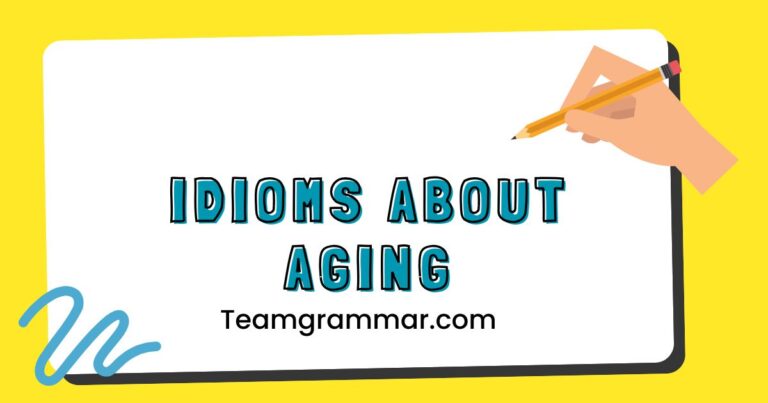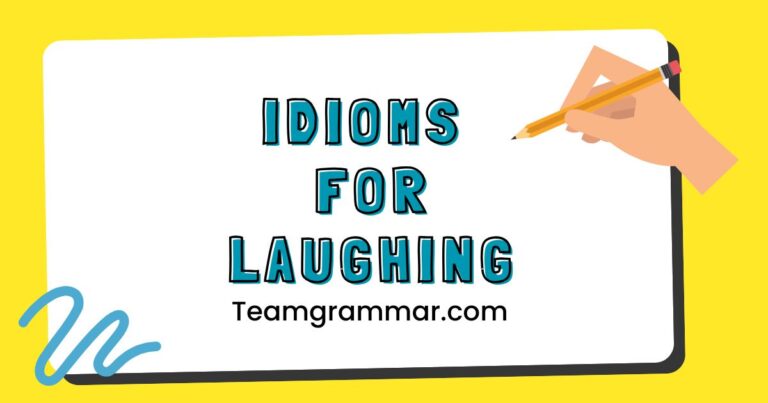47 Idioms for Rich: Mastering Wealth-Related English Expressions
Understanding idioms related to wealth and prosperity is crucial for mastering English fluency. These expressions add color and depth to conversations, allowing you to grasp nuanced meanings beyond literal interpretations.
This article provides a comprehensive guide to common idioms about being rich, explaining their meanings, origins, and usage. Whether you’re an English language learner or simply seeking to enrich your vocabulary, this resource will help you confidently navigate discussions about wealth and success.
This guide is designed for English language learners, business professionals, and anyone interested in expanding their understanding of English idioms. By the end of this article, you will have a firm grasp of wealth-related idioms, enabling you to use them accurately and understand them in various contexts.
Table of Contents
- Definition of Idioms for Rich
- Structural Breakdown
- Types and Categories of Wealth-Related Idioms
- Examples of Idioms for Rich
- Usage Rules
- Common Mistakes
- Practice Exercises
- Advanced Topics
- FAQ
- Conclusion
Definition of Idioms for Rich
Anidiomis a phrase or expression whose meaning cannot be understood from the literal meanings of its individual words. Idioms related to wealth refer to expressions that describe having a lot of money, being successful financially, or displaying affluence.
These idioms often use figurative language to convey the idea of wealth in a more vivid or humorous way. They can be classified based on their function: describing the state of being rich, the process of becoming rich, or the way rich people behave.
Wealth-related idioms provide a window into cultural attitudes toward money and success. They reflect societal values, aspirations, and sometimes, criticisms of wealth.
Understanding these idioms allows for a deeper comprehension of cultural nuances in discussions about finance and prosperity.
Structural Breakdown
Idioms, by their nature, defy simple structural analysis. They are fixed expressions, meaning their components cannot be altered without losing the idiomatic meaning.
However, we can observe patterns in how these idioms are constructed. Many involve metaphors (comparing wealth to something else), similes (using “like” or “as” to compare wealth), or hyperbole (exaggerating the amount of wealth).
The grammatical structure can vary; some are simple phrases, while others are clauses or even complete sentences.
The key to understanding the structure of an idiom lies in recognizing that the whole phrase has a meaning different from the sum of its parts. For example, “born with a silver spoon in one’s mouth” doesn’t literally mean the person was born with silverware; it means they were born into wealth and privilege.
The structural elements contribute to the overall figurative meaning.
Types and Categories of Wealth-Related Idioms
Wealth-related idioms can be categorized based on the aspect of wealth they describe:
Describing the State of Being Rich
These idioms depict the condition of being wealthy. They often paint a picture of comfort, luxury, and financial security.
Describing Wealth Acquisition
These idioms focus on how wealth is obtained, whether through hard work, luck, or inheritance.
Describing Wealth Spending
These idioms illustrate how wealthy people spend their money, often highlighting extravagant or conspicuous consumption.
Describing Wealth Status
These idioms refer to the social standing and influence that wealth can provide.
Examples of Idioms for Rich
This section provides a comprehensive list of idioms related to wealth, categorized for clarity. Each idiom is accompanied by its meaning and example sentences to illustrate its usage.
Idioms with Literal Wealth References
These idioms contain direct references to money or valuable items.
The following table provides numerous examples of idioms that literally reference wealth.
| Idiom | Meaning | Example Sentence |
|---|---|---|
| Born with a silver spoon in one’s mouth | Born into a wealthy family | He didn’t have to work a day in his life; he was born with a silver spoon in his mouth. |
| Rolling in money | Extremely wealthy | After his company went public, he was rolling in money. |
| Filthy rich | Extremely wealthy (often with a negative connotation) | The CEO is filthy rich, but his employees are struggling to make ends meet. |
| Sitting on a gold mine | Owning something very valuable | The old house might look run-down, but it’s sitting on a gold mine because of the land it’s on. |
| Money to burn | Having so much money that one can spend it wastefully | They have money to burn; they buy a new car every year. |
| In the money | Having made a lot of money | After winning the lottery, they were in the money. |
| Strike gold | To suddenly become rich or successful | He struck gold when his invention became a global phenomenon. |
| Golden parachute | A large payment or other financial compensation guaranteed to a company executive should the executive be dismissed as a result of a merger or takeover. | The outgoing CEO received a generous golden parachute. |
| Cash cow | A business or investment that generates a steady profit | That product line is their cash cow, consistently bringing in revenue. |
| Worth its weight in gold | Extremely valuable or useful | A reliable employee is worth their weight in gold. |
| Have deep pockets | To have a lot of money | The company can afford the lawsuit; they have deep pockets. |
| Live like a king | To live in luxury and comfort | Since winning the lottery, they live like kings. |
| Swimming in cash | Having a lot of money | The business is swimming in cash after a successful quarter. |
| A pot of gold at the end of the rainbow | An illusionary reward or something that is difficult to achieve | Chasing fame is like looking for a pot of gold at the end of the rainbow. |
| Made of money | Very rich | They can afford that expensive vacation; they’re made of money. |
| Live in the lap of luxury | To live in very comfortable and expensive conditions | After inheriting a fortune, she began to live in the lap of luxury. |
| Money is no object | Money is not a limiting factor | For that project, money is no object; we want the best quality. |
| Sitting pretty | In a favorable situation, often financially | After paying off their mortgage, they were sitting pretty. |
| Affluent | Having a great deal of money; wealthy | The neighborhood is known for its affluent residents. |
| Well-heeled | Wealthy | The well-heeled patrons often donate generously to the museum. |
| Opulent | Ostentatiously rich and luxurious or lavish | The hotel suite was opulent, with gold fixtures and silk drapes. |
| Gilded | Covered thinly with gold leaf or gold paint; wealthy and privileged | The gilded age was characterized by immense wealth and social inequality. |
| Loaded | Very rich | He is loaded, he owns half of the city. |
| flush | Having plenty of money | They are flush with cash after the successful IPO. |
| Minted | Having made a lot of money, especially recently | He’s minted since his company was sold to a larger corporation. |
Idioms with Figurative Wealth References
These idioms use metaphorical language to describe wealth, often drawing on imagery of abundance or ease.
The following table provides numerous examples of idioms that figuratively reference wealth.
| Idiom | Meaning | Example Sentence |
|---|---|---|
| Living high on the hog | Living luxuriously | Since getting the promotion, they’ve been living high on the hog. |
| Cushy number | An easy and profitable job | He landed a cushy number in the government, with little work and high pay. |
| Laughing all the way to the bank | Making a lot of money easily | The inventor was laughing all the way to the bank after selling his patent. |
| Greasing the wheels | Making things easier with money or favors | He greased the wheels with a generous donation to the charity. |
| Feathering one’s nest | Using one’s position to enrich oneself | The politician was accused of feathering his nest with public funds. |
| Gravy train | An easy way to make money | Many see politics as a gravy train, offering opportunities for personal enrichment. |
| Soft landing | An easy transition, often financially | The retiring CEO was given a soft landing with a consulting position. |
| Strike it rich | To become wealthy suddenly | He hoped to strike it rich by investing in the stock market. |
| In clover | Living comfortably and prosperously | Since winning the lottery, they’ve been in clover. |
| Have it made | To be assured of success or comfort | Once he finished his degree, he knew he would have it made. |
| Lead a charmed life | To live a life of unusual happiness and success | She seemed to lead a charmed life, with everything falling into place effortlessly. |
| The Midas touch | The ability to make money from anything one undertakes | Everything he invests in seems to succeed; he has the Midas touch. |
| Land on one’s feet | To recover quickly from a difficult situation, often financially | Despite losing his job, he managed to land on his feet and find a new one quickly. |
| On easy street | In a state of financial comfort | After inheriting a large sum, they were on easy street. |
| To be born under a lucky star | To be born with good fortune | She must have been born under a lucky star; things always seem to go her way. |
| Have a golden touch | The ability to easily make money or be successful in business | She has a golden touch; every business she starts becomes profitable. |
| Be sitting pretty | To be in a good situation, especially financially | With their investments paying off, they are sitting pretty. |
| To get rich quick | To become wealthy in a short amount of time | He tried to get rich quick with a risky investment. |
| To have the world at one’s feet | To be extremely successful and able to do anything one wants | After winning the championship, he had the world at his feet. |
| Live the life of Riley | To enjoy a luxurious and carefree lifestyle | Since retiring, he’s been living the life of Riley, traveling and relaxing. |
| In the lap of luxury | Living in very comfortable and expensive conditions | She always dreamed of living in the lap of luxury. |
| To be in a good place | To be in a positive situation, often financially stable and happy | After years of hard work, he’s finally in a good place. |
Idioms Describing Wealth Acquisition
These idioms describe how wealth is obtained, whether through hard work, luck, or inheritance.
The following table provides examples of idioms that describe wealth acquisition.
| Idiom | Meaning | Example Sentence |
|---|---|---|
| Make a killing | To make a large profit quickly | He made a killing in the stock market last year. |
| Clean up | To make a lot of money | The company cleaned up during the holiday season. |
| Come into money | To inherit money | She came into money when her grandfather passed away. |
| Make ends meet | To have just enough money to cover expenses | It’s hard to make ends meet with the rising cost of living. |
| Get by | To manage to live or do things with limited resources | We can get by on a small budget if we’re careful. |
| Scrape by | To manage to survive on very little money | During college, he had to scrape by on student loans and part-time jobs. |
| Turn a profit | To make more money than one spends | The new business managed to turn a profit in its first year. |
| Break the bank | To cost too much money | That new car will break the bank if we’re not careful. |
| Cash in on | To take advantage of an opportunity to make money | He cashed in on the popularity of the new trend by selling related merchandise. |
| Line one’s pockets | To make money dishonestly or unfairly | The corrupt officials were accused of lining their pockets with public funds. |
| Make a fast buck | To earn money quickly, often through questionable means | He was always looking for ways to make a fast buck. |
| Bring home the bacon | To earn a living or provide for one’s family | She works hard to bring home the bacon for her family. |
| Be in the black | To have a positive bank balance; to be making a profit | The company is finally in the black after a tough year. |
| Be in the red | To have a negative bank balance; to be losing money | The business has been in the red for the past three months. |
| Tighten one’s belt | To spend less money | We need to tighten our belts and cut back on unnecessary expenses. |
| Eke out a living | To earn just enough money to survive | They eke out a living by selling handmade crafts at the market. |
| Make a killing | To earn a large profit quickly | He made a killing in the stock market last year. |
| Make a fortune | To become very rich | She made a fortune with her successful business. |
| Make money hand over fist | To earn money very quickly and easily | They were making money hand over fist during the holiday season. |
| on the breadline | Very poor, in need of money | Many families found themselves on the breadline during the recession. |
Idioms Describing Wealth Spending
These idioms illustrate how wealthy people spend their money, often highlighting extravagant or conspicuous consumption.
The following table provides examples of idioms that illustrate wealth spending.
| Idiom | Meaning | Example Sentence |
|---|---|---|
| Live beyond one’s means | To spend more money than one earns | They were living beyond their means and quickly accumulating debt. |
| Splash out | To spend a lot of money on something special | They decided to splash out on a luxury vacation. |
| Shell out | To pay money for something, often unwillingly | I had to shell out a lot of money to get my car repaired. |
| Foot the bill | To pay for something | The company will foot the bill for the business trip. |
| Keep up with the Joneses | To try to match the possessions and lifestyle of one’s neighbors | They were always trying to keep up with the Joneses, buying things they couldn’t afford. |
| Fritter away | To waste money or resources | He frittered away his inheritance on frivolous expenses. |
| Blow money | To spend money carelessly or wastefully | He tends to blow money on impulse purchases. |
| Go Dutch | To share the cost of a meal or outing | Let’s go Dutch on dinner tonight. |
| Penny-pinching | Being very careful with money; frugal | She is penny-pinching to save up for a new house. |
| Extravagant | Spending money freely or excessively | They threw an extravagant party for their anniversary. |
| Lavish | Extremely generous or extravagant | The hotel offered a lavish buffet breakfast. |
| Profligate | Wasteful in the use of resources, especially money | His profligate spending habits led to financial ruin. |
| Spendthrift | A person who spends money wastefully | She is such a spendthrift; she buys things she doesn’t need. |
| Tight-fisted | Unwilling to spend money | He is known for being tight-fisted when it comes to tipping. |
| Generous | Willing to give money or help to others | They are very generous with their time and resources. |
| Charitable | Giving money or help to those in need | The foundation is charitable, donating millions to various causes. |
Idioms Describing Wealth Status
These idioms refer to the social standing and influence that wealth can provide.
The following table provides examples of idioms that describe wealth status.
| Idiom | Meaning | Example Sentence |
|---|---|---|
| Movers and shakers | Influential people who make things happen | The conference was attended by the movers and shakers of the industry. |
| Upper crust | The highest social class; the wealthy elite | They belong to the upper crust of society. |
| Elite | A select group that is superior in terms of ability or qualities to the rest of a group or society | The university is known for its elite academic standards. |
| High society | The wealthy and influential members of society | She moved in high society circles after marrying into a wealthy family. |
| Big shot | An important or influential person | He became a big shot in the company after years of hard work. |
| Top dog | The person in charge; the leader | He worked hard to become the top dog in his profession. |
Usage Rules
When using idioms, it’s crucial to consider the context and audience. Idioms are informal and may not be appropriate in formal writing or professional settings.
Pay attention to the connotations of the idiom; some idioms about wealth can be negative (e.g., “filthy rich”), implying that wealth was acquired through unethical means. Always ensure that the idiom fits the tone and purpose of your communication.
Another important rule is to use idioms correctly. Avoid altering the wording or grammatical structure, as this can change the meaning or make the idiom nonsensical.
If you’re unsure about the correct usage, it’s best to consult a dictionary or grammar guide.
Common Mistakes
One common mistake is taking idioms literally. For example, someone might misinterpret “born with a silver spoon in one’s mouth” to mean the person was actually born with silverware.
The key is to understand the figurative meaning and not focus on the individual words.
Another mistake is using idioms in inappropriate contexts. For instance, using “rolling in money” in a formal business presentation would be out of place.
It’s essential to consider the audience and purpose of your communication when choosing idioms.
Here are some examples of common mistakes and their corrections:
| Incorrect | Correct | Explanation |
|---|---|---|
| He was born with a gold spoon in his mouth. | He was born with a silver spoon in his mouth. | The correct idiom is “silver spoon,” not “gold spoon.” |
| They are rolling on money. | They are rolling in money. | The correct preposition is “in,” not “on.” |
| She is living high from the hog. | She is living high on the hog. | The correct preposition is “on,” not “from.” |
| He cleaned up the money. | He cleaned up. | “Clean up” is used alone to mean making a lot of money. |
Practice Exercises
Test your understanding of wealth-related idioms with these practice exercises.
Exercise 1: Fill in the Blanks
Complete the following sentences using the correct idiom from the list below:
(born with a silver spoon, rolling in money, sitting on a gold mine, money to burn, in the money)
| Question | Answer |
|---|---|
| 1. He didn’t have to worry about college expenses because he was __________. | born with a silver spoon |
| 2. After selling his company, he was __________. | rolling in money |
| 3. The old building might not look like much, but it’s __________. | sitting on a gold mine |
| 4. They buy a new yacht every year; they have __________. | money to burn |
| 5. After winning the lottery, they were finally __________. | in the money |
| 6. She inherited a large fortune, so she was __________. | born with a silver spoon |
| 7. With their successful business venture, they are now __________. | rolling in money |
| 8. The antique shop is __________, filled with valuable artifacts. | sitting on a gold mine |
| 9. They travel the world and stay in luxury hotels; they have __________. | money to burn |
| 10. The investors were ___________ after their stocks soared. | in the money |
Exercise 2: Match the Idiom to its Meaning
Match the idiom in column A with its meaning in column B.
| Column A (Idiom) | Column B (Meaning) |
|---|---|
| 1. Living high on the hog | a. Making a lot of money easily |
| 2. Laughing all the way to the bank | b. Using one’s position to enrich oneself |
| 3. Feathering one’s nest | c. An easy way to make money |
| 4. Gravy train | d. Living luxuriously |
| 5. Strike it rich | e. To become wealthy suddenly |
Answers:
| Question | Answer |
|---|---|
| 1 | d |
| 2 | a |
| 3 | b |
| 4 | c |
| 5 | e |
Exercise 3: Multiple Choice
Choose the correct meaning of the idiom in the sentence.
| Question | Options | Answer |
|---|---|---|
| 1. They are always trying to keep up with the Joneses. | a) Stay ahead of their neighbors, b) Match the lifestyle of their neighbors, c) Ignore their neighbors | b |
| 2. He had to shell out a lot of money for the repairs. | a) Save money, b) Pay money, c) Invest money | b |
| 3. The company will foot the bill for the conference. | a) Attend the conference, b) Pay for the conference, c) Organize the conference | b |
| 4. They decided to splash out on a new car. | a) Save money on a car, b) Spend a lot of money on a car, c) Ignore buying a car | b |
| 5. After years of hard work, she finally made a fortune. | a) Lost a lot of money, b) Became very rich, c) Broke even | b |
| 6. They are living beyond their means. | a) Living frugally, b) Spending more than they earn, c) Saving a lot of money | b |
| 7. He made a killing in the stock market. | a) Lost a lot of money, b) Made a large profit quickly, c) Broke even | b |
| 8. The business is finally in the black. | a) Losing money, b) Making a profit, c) Breaking even | b |
| 9. They had to tighten their belts during the recession. | a) Spend more money, b) Spend less money, c) Borrow money | b |
| 10. She came into money when her grandfather passed away. | a) Lost a lot of money, b) Inherited money, c) Borrowed money | b |
Advanced Topics
For advanced learners, it’s beneficial to explore the historical and cultural context of wealth-related idioms. Many idioms have roots in specific historical events or social customs.
Understanding these origins can provide a deeper appreciation for the nuances of the language. For example, the idiom “born with a silver spoon in one’s mouth” dates back to a time when silver spoons were a luxury item, symbolizing wealth and privilege.
Another advanced topic is the use of idioms in literature and media. Authors and filmmakers often use idioms to create vivid imagery, develop characters, and convey themes related to wealth and social class.
Analyzing these uses can enhance your comprehension of both the language and the cultural messages being conveyed.
FAQ
Here are some frequently asked questions about idioms for rich.
- What is an idiom?
- Why is it important to learn idioms?
- Are idioms formal or informal?
- Can I change the wording of an idiom?
- How can I learn new idioms?
- What should I consider when using idioms?
- What are some common mistakes when using idioms?
- Where can I find more resources on idioms?
- How do I know if an expression is an idiom?
- Are there idioms about being poor?
- How do wealth-related idioms reflect cultural values?
- Can idioms have different meanings in different cultures?
An idiom is a phrase or expression whose meaning cannot be understood from the literal meanings of its individual words. It’s a fixed expression with a figurative meaning.
Learning idioms enhances your understanding of English and allows you to communicate more effectively. Idioms add color and nuance to conversations and writing.
Idioms are generally informal and are more appropriate for casual conversations than formal writing or professional settings.
No, idioms are fixed expressions, and changing the wording can alter the meaning or make the idiom nonsensical.
Read widely, listen to native speakers, and use a dictionary or idiom guide. Pay attention to how idioms are used in context.
Consider the context, audience, and connotations of the idiom. Ensure that the idiom fits the tone and purpose of your communication.
Common mistakes include taking idioms literally, using them in inappropriate contexts, and altering the wording or grammatical structure.
You can find resources on idioms in dictionaries, grammar guides, online language learning platforms, and books on English idioms.
If the meaning of a phrase is different from the literal meaning of its words, it’s likely an idiom. Dictionaries and idiom guides can confirm this.
Yes, there are many idioms about being poor, such as “dirt poor,” “broke,” “on the breadline,” and “scraping by.” These idioms often describe the experience of financial hardship and struggle.
Wealth-related idioms reflect cultural values by revealing attitudes toward money, success, and social status. Some idioms may express admiration for wealth, while others may criticize its excesses or the way it’s acquired.
Yes, idioms can have different meanings or may not exist at all in
different cultures. It’s important to be aware of cultural differences when using idioms in international communication.
Conclusion
Mastering idioms for rich is a valuable skill for anyone looking to improve their English proficiency. These expressions add depth and color to your language, allowing you to understand and participate in conversations about wealth and success with greater confidence.
By understanding the meanings, origins, and usage rules of these idioms, you can communicate more effectively and gain a deeper appreciation for the cultural nuances of the English language. Keep practicing and expanding your knowledge, and you’ll soon be speaking like a native!







